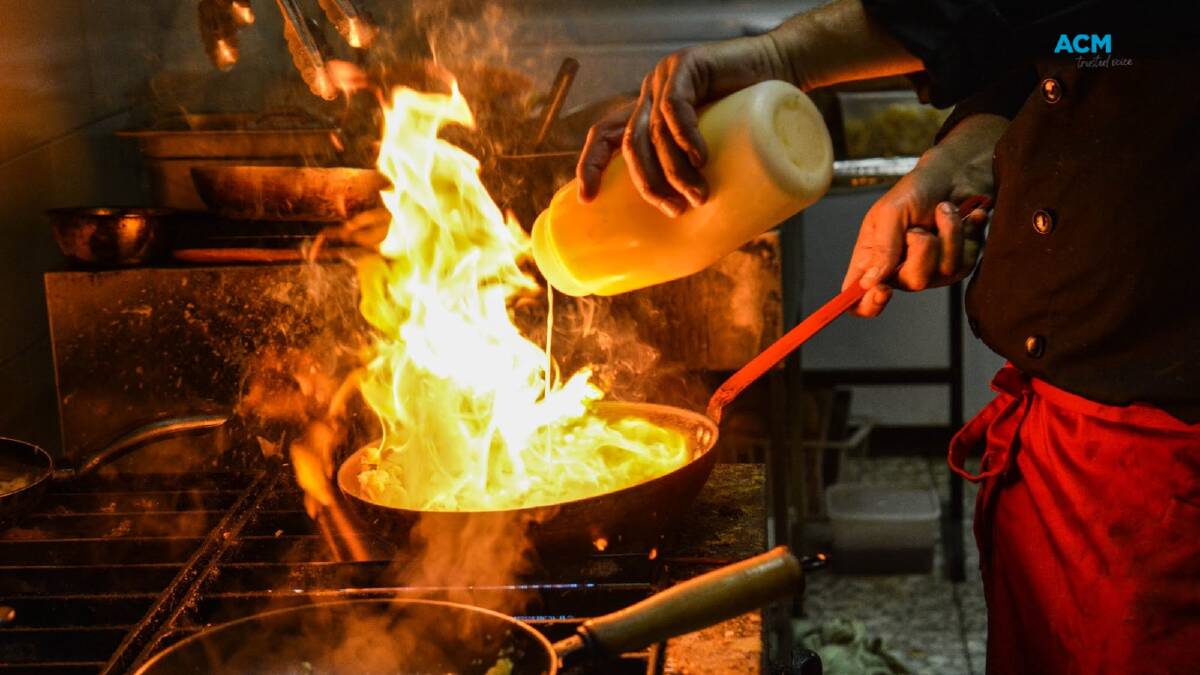Hospitality workers are trained to put their needs last, leaving restaurant staff dealing with mental and physical repercussions.
ACM spoke to chef Colin Wood, who cooked in some of New York, Melbourne and Sydney's best restaurants, about how abuse and trauma is normalised in the industry.
"We don't understand or value how this kind of traumatic experience impacts people," Mr Wood said.
The atmosphere in a busy kitchen is controlled but frantic, chefs are working against time pressures to cook consistent and delicious food, for up to 16 hours per day, he said.

"When it's stinking hot, there's no air conditioning and the dishwasher breaks, you just have to deal with it," Mr Wood said.
"The environment puts intense pressure on everyone to get the job done," he said.
"Junior staff don't have any power to get out of the situation, or fix it."
Mr Wood said when you're getting "belted for hours," with customers and management jostling for your time and attention, it is hard to consider your own needs.
"The last thing you want to do is sit down and have a salad, that's not how trauma and anxiety works," said the chef, now producing coveted jersey cheese in Sydney.
"You need a quick hit that will make you feel a dopamine buzz."
That is where an over-reliance on alcohol, cigarettes and drugs come in, Mr Wood said.
University of Queensland Business School associate professor Richard Robinson told ACM that a disproportionate number of people in hospitality suffer from disorders associated with drug and alcohol abuse.
Professor Robinson said the nature of hospitality work often results in staff having little sleep, poor nutrition and physical exhaustion.
IN OTHER NEWS:
The "knock-on effects" of physical depletion predisposed hospitality staff to poor mental health, often made worse by drug and alcohol use, the professor said.
Chefs are more likely than the general population to commit suicide, Professor Robinson said.
Female chefs, particularly migrant workers, have an even greater likelihood of becoming suicidal, he said.
Professor Robinson said restaurants had a distinct occupational culture. Toxic norms are reproduced by junior staff seeking acceptance and become entrenched as those same chefs move up the kitchen hierarchy.
Abuse resulting from these "toxic norms" are tolerated and under-reported because they are perceived to be "part of the game," he said.
Abuse of various forms, like sexual and racial harassment, are at stratospheric levels.
- Professor Robinson
Waiters and front-of-house workers deal with many of the same toxic norms as chefs and are less likely to have secure work.
The low barrier of entry to front-of-house and unskilled kitchen work means young people, migrants and marginalised workers typically sign on to do casual and insecure work.
"Workers come into the industry with their own vulnerabilities and can be easily exploited," Professor Robinson said.
Precarious, sometimes aggressive, working conditions make staff less likely to stand up for themselves, allowing these cycles to continue, he said.

Chef Colin Wood left the kitchen after years of cooking under pressure, and has returned to the industry as a waiter.
"The traumatic response triggers and it's so easy to slip back into those patterns," Mr Wood said.
Even outside working hours, "the need to look after other people is so entrenched, I can't sit still," he said.
"I have to be doing something productive to have self worth."
Hospitality can be a great industry to work in, but business owners and operators should ensure it "lives up to the promise" for the next generation, Professor Robinson said.
Ready access to nourishing food, and a calm place to eat, will provide some respite. But owners and managers should strive to create a culture where personal health is respected and valued, Mr Wood said.
A greater emphasis on education can curb some cultural problems. Teaching young chefs about employee rights and positive work environments will train the next generation of head chefs and business owners, he said.
Professor Robinson recommends implementing an accreditation for hospitality business owners, as some novice owners are likely "the ones who often end up taking shortcuts and exploiting their workers".
But they are far from being the only offenders, he said.
If you need support, contact:
- Beyondblue - 1300 224 636 or www.beyondblue.org.au
- 1800RESPECT - 1800 737 732 or www.1800respect.org.au
- MensLine Australia - 1300 789 978 or www.mensline.org.au
- Lifeline - 13 11 14 or www.lifeline.org.au
- Suicide Call Back Service - 1300 659 467 or www.suicidecallbackservice.org.au


